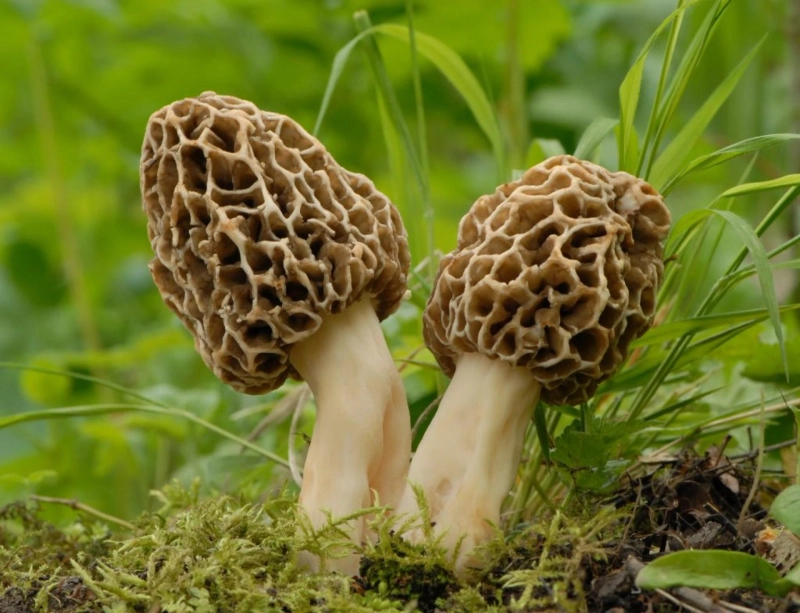Knowledge about Mushroom Cultivation
Mushroom cultivation is a low-impact agricultural method requiring minimal resources. Unlike traditional crops, mushrooms do not need large land areas, continuous irrigation, or chemical fertilizers. They thrive on organic waste, transforming materials like sawdust and coffee grounds into nutritious food.
Effective Utilization of Resources
Mushrooms are typically grown in controlled environments, allowing for precise resource management. The production process utilizes:
- Minimal Water: Mushrooms require significantly less water compared to conventional crops. For example, producing one pound of mushrooms needs only 1.8 gallons of water, whereas potatoes require 50 gallons.
- Recycled Substrates: Using agricultural waste as a growing medium, mushroom farming supports a circular economy and reduces landfill waste, thereby conserving resources and lowering greenhouse gas emissions.
Benefits of Mushrooms for the Ecosystem
Mushrooms are natural decomposers, breaking down organic matter and recycling nutrients back into the soil. This process enriches the soil, supporting various habitats and promoting plant growth.
Mycoremediation
One of the most promising environmental uses of mushrooms is mycoremediation—the use of fungi to cleanse contaminated environments. Certain mushroom species can degrade pollutants like pesticides, heavy metals, and petroleum products, offering a cost-effective and eco-friendly alternative to traditional cleanup methods.
Biodiversity and Soil Health
Mushrooms enhance soil fertility and structure, with their mycelium network improving aeration and water retention. They also support biodiversity by providing habitat and food for various organisms, including insects and mammals.
Impact on the Economy and Society
Mushrooms offer significant social and economic benefits. They have a high market value and low production costs, making them an attractive livelihood option, especially in rural areas.
Rural Development and Employment Creation
Mushroom farming can drive rural development by creating jobs and supporting local economies. Small-scale farmers can cultivate mushrooms with minimal investment, generating a steady income and reducing reliance on external inputs.
Food Security and Nutrition
Mushrooms are a rich source of protein, vitamins, and minerals. They provide a reliable, year-round source of nutrition, contributing to food security. Additionally, mushrooms possess medicinal properties that promote overall health and well-being.
Creative Ways to Use Mushrooms
Mushrooms are versatile and can be used in innovative ways to tackle modern environmental challenges.
Biodegradable Items
Researchers are exploring the potential of mushrooms to produce biodegradable products. Mycelium-based materials can replace plastics and other non-biodegradable substances, reducing environmental pollution. These materials are used in construction, packaging, and even fashion, demonstrating the versatility of fungal biotechnology.
Eco-Friendly Fabrics
The fashion industry, known for its environmental impact, is witnessing a revolution with mushroom leather. Made from mycelium, this eco-friendly alternative to animal leather reduces the industry\'s dependence on livestock and its associated environmental impacts.
Obstacles and Prospects for the Future
Despite their many advantages, expanding mushroom production and applications presents challenges. Research and development are crucial to overcoming these hurdles and unlocking the full potential of mushrooms.
Research and Innovation
Investments in R&D can lead to improved fungal strains, higher yields, and enhanced cultivation methods. Understanding the genetic and environmental factors influencing mushroom growth will make production more efficient and sustainable.
Policy Support and Awareness
Public awareness and supportive policies are vital for promoting sustainable mushroom farming. Policies can incentivize farmers to engage in mushroom cultivation, while awareness campaigns can educate consumers and stakeholders about the environmental and economic benefits of mushrooms.
Mushrooms are at the forefront of sustainable agriculture, offering unparalleled environmental, economic, and social benefits. Their ability to recycle waste, remediate polluted areas, and foster biodiversity makes them valuable allies in combating climate change and environmental degradation. Through investment in research, innovation, and public education, we can harness the potential of mushrooms to build a resilient and sustainable future.



